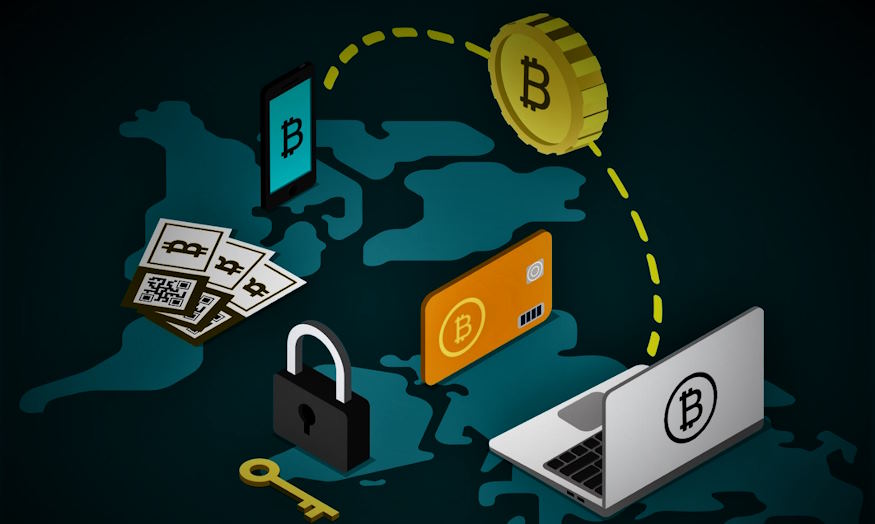
Cryptocurrency and Cross-Border Transactions: Streamlining Global Payments
In today’s increasingly interconnected world, where commerce knows no boundaries, the need for efficient and seamless cross-border transactions has never been more pressing. Traditional banking systems, burdened by complex processes, high fees, and time-consuming settlement periods, often hinder the speed and cost-effectiveness of global payments. However, the emergence of cryptocurrency as a disruptive force in the financial landscape offers a glimmer of hope. With its decentralized nature, innovative blockchain technology, and potential for financial inclusivity, cryptocurrency has the power to transform the way we conduct cross-border transactions.
The Challenges of Traditional Cross-Border Transactions
Slow and costly nature of traditional banking systems:
Traditional cross-border transactions often suffer from inefficiencies that result in significant delays and high costs. The reliance on intermediary banks, correspondent banking networks, and manual processes contributes to the sluggishness of these transactions. Each step of the process, from initiation to settlement, involves multiple parties and extensive paperwork, leading to delays that can stretch for several days or even weeks. Additionally, the involvement of multiple intermediaries leads to substantial transaction fees, which can significantly impact the overall cost of cross-border payments.
Lengthy settlement times and delays:
The settlement of cross-border transactions is often subject to prolonged waiting periods. The traditional banking system relies on a series of intermediaries, including correspondent banks, to facilitate the transfer of funds across borders. Each intermediary adds to the processing time, resulting in extended settlement times. Delays can be further exacerbated by differences in time zones, holidays, and operational hours between countries, causing frustration for individuals and businesses who require timely access to funds.

How Cryptocurrency Can Address the Challenges
Instantaneous transactions with blockchain technology:
Cryptocurrency, powered by blockchain technology, offers the potential for instantaneous cross-border transactions. Unlike traditional banking systems that rely on multiple intermediaries and manual processes, cryptocurrencies operate on decentralized networks, allowing for peer-to-peer transactions. With blockchain technology, transactions can be recorded and verified in real-time, eliminating the need for lengthy settlement times. This speed and efficiency make cryptocurrency an attractive option for individuals and businesses seeking fast and secure cross-border payments.
Lower transaction fees compared to traditional methods:
Another significant advantage of cryptocurrency is its ability to reduce transaction costs. Traditional banking systems often impose hefty fees for cross-border transactions, including currency conversion fees and intermediary charges. In contrast, cryptocurrencies typically have lower transaction fees, especially when transferring funds directly between crypto wallets. This cost-effectiveness can result in substantial savings, particularly for large or frequent cross-border transactions, making cryptocurrency an appealing alternative to traditional methods.
Elimination of currency exchange issues:
Currency exchange fees and fluctuations pose significant challenges in traditional cross-border transactions. Cryptocurrency transcends these issues by providing a universal digital currency that can be used globally. With cryptocurrency, transactions can occur without the need for currency conversion, as the value remains consistent regardless of the sender and recipient’s location. This eliminates the complexities and costs associated with traditional currency exchange, streamlining cross-border payments.

Real-world Examples of Cryptocurrency Streamlining Cross-Border Transactions
Ripple (XRP) and its role in enabling fast and low-cost remittances:
Ripple, a blockchain-based payment protocol, has emerged as a game-changer in cross-border remittances. Traditional remittance services are often plagued by delays and high transaction fees, making it challenging for individuals to send money across borders promptly. Ripple’s XRP cryptocurrency, coupled with its innovative payment network, offers a solution to this problem. By leveraging its consensus algorithm, Ripple enables near-instantaneous settlement of transactions, reducing remittance times from days to seconds. Moreover, its low transaction fees make it an attractive option for cost-effective cross-border transfers, empowering individuals and businesses to send money globally without the burden of excessive charges.
Stellar (XLM) and its focus on providing financial services to the unbanked:
Stellar, an open-source blockchain platform, has a mission to improve financial inclusivity for the unbanked and underbanked populations around the world. By facilitating low-cost and accessible cross-border transactions, Stellar’s native cryptocurrency XLM enables users to transfer funds across borders effortlessly. The platform’s decentralized exchange allows for seamless currency conversions, removing the need for intermediary banks and their associated fees. This approach opens up new opportunities for the unbanked to participate in global trade, receive remittances, and access essential financial services that were previously out of reach.
Bitcoin (BTC) and its potential as a cross-border store of value:
Bitcoin, the pioneering cryptocurrency, has garnered attention not only as a digital asset but also as a potential cross-border store of value. With its borderless and decentralized nature, Bitcoin offers a secure and censorship-resistant means of preserving wealth across borders. Individuals and businesses can use Bitcoin to safeguard their assets, especially in regions experiencing economic instability or where traditional financial systems are unreliable. While Bitcoin’s transaction speeds and fees may not be as competitive as some other cryptocurrencies, its status as a global digital store of value has made it a popular choice for cross-border wealth preservation.
